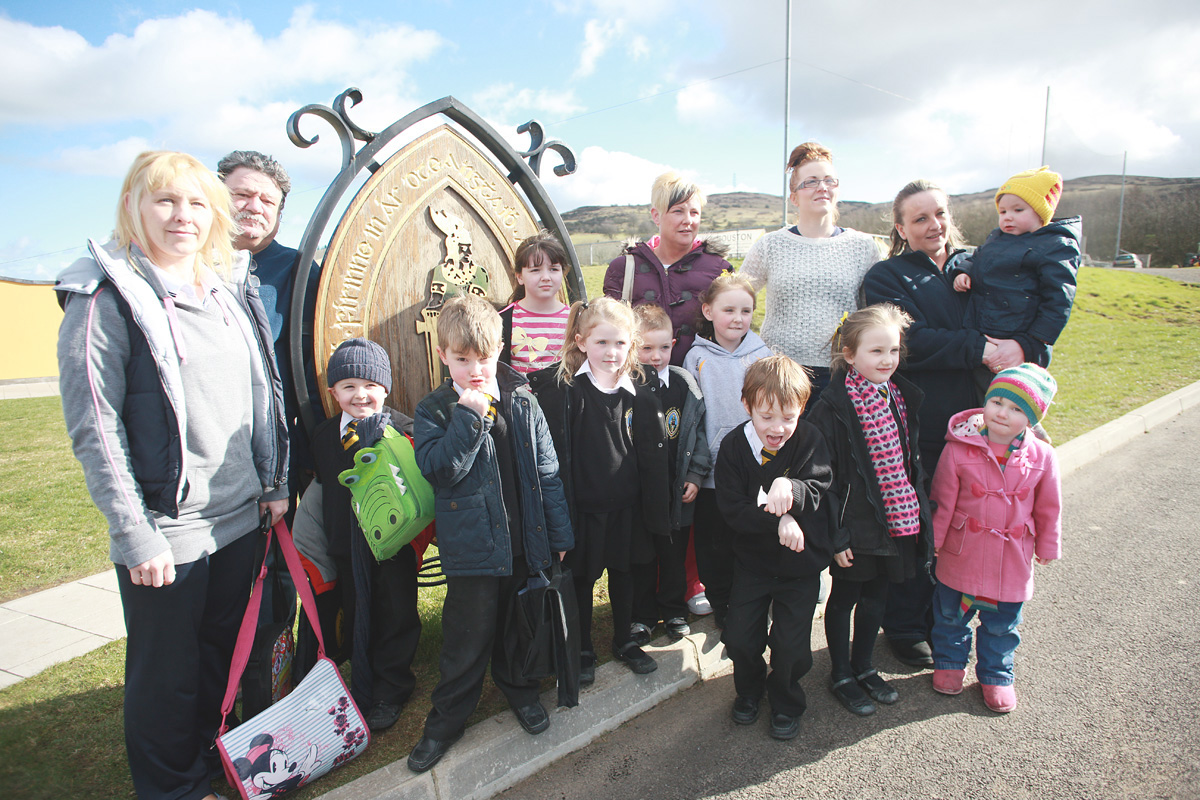COMMUNITY groups, residents and a local school principal have vowed to resist plans to construct a massive incinerator near homes and schools at Hightown.
The concerted community reaction comes after the North Belfast News last week revealed proposals to construct one of the largest waste facilities in Ireland. Detailed plans of what the project will entail were unveiled earlier this week by the Becon Consortium. The company, which is carrying out the work on behalf of Arc21, intend to build the incinerator at the Hightown Quarry site on the Boghill Road. Consultation with the public on the development is due to begin later this month.
However, those living and working close to the proposed site remain unconvinced, citing concerns over pollution, heavy traffic and public health.
A leading environmental academic at Queen’s University has also come out against the plans.
For the ‘Energy from Waste’ plant to be viable there must be a constant supply of waste going into the plant. This will require dozens of lorries to make more than 100 journeys to the plant every day, close to an area that already experiences its fair share of traffic congestion.
Concerns have also been raised that previous incinerators in other places have been linked to the release of dioxins and other harmful gasses.
Helen Callaghan, of Mayfield Village Community Association, said that the plant would have a “detrimental health impact” on the area.
“Although we have not had time to fully consider all the information made available, our initial reaction to the proposed site of such a major industrial project on top of the Belfast hills and adjacent to so many residential areas is one of great concern.”
Catherine Hardy, of Glengormley Community Group, said she would back any objections to the plan.
“I do not feel health wise that this is a positive thing to have near a residential area.
“The amount of traffic that’s going to be coming through the area is another major concern. At the moment, the town is stretched to capacity. There’s no way this town can accommodate the traffic required to make this plant viable.
“Not only will it have an environmental impact, but it will also have a negative impact on day to day life in the area.”
Maighréad Ní Chonghaile principal at Naoiscoil Éanna in Glengormley, described it as “a daunting prospect”.
“We are educating young children here. There are hundreds of other children who play in those football fields every day, and I cannot imagine that something like this would be good for them.
“In this school, we try to promote healthy living and personal wellbeing. The like of this coming into the area goes against all of that. It will pollute the very air that we breathe.”
Parents of children who attend Naoiscoil Éanna also voiced their opposition to the plans.
“People in the community simply do not want it,” said Anne Teer. “Hopefully there will be resistance to this. I’m concerned about the traffic and the fumes. It’s hard enough to get up and down the road without this coming along.”
Mother-of-three, Marie Murphy, said she was “definitely not in favour” of the incinerator being built.
In a statement released on Tuesday, the Becon Consortium said the quarry was "considered the best location for the new facilities as it is centrally located in the Arc21 area, and has good connections to the primary road network as well as the national electricity grid".
Queen’s University’s Dr John Barry, who is also a Green Party councillor in North Down, said his party will campaign against any incinerator being built in the area.
“The major objection is the sheer amount of waste that is needed to make incinerators viable. It requires a 24-hour waste stream,” said Dr Barry. “Another major issue is the quantity of toxic residue, such as the release of dioxins, which is a major public health problem. I would urge councils to bypass incineration and go straight for MBT. It’s a much safer technology than incineration.”
Dr Barry also said the Public-Private Partnership (PPP) funding model which is being proposed for the facility is bad value for public money, describing it as a “typical neo-liberal project”.
“There’s a lot of money to be made in waste. With PPP, there’s another consideration in terms of public authorities being locked into disadvantageous contracts for many years. How long will the taxpayer be paying for this, and to what extent will the public really be consulted?”
Becon Consortium claims the construction of the facility would provide up to 455 jobs, increase recycling levels and provide enough energy to power 30,000 homes.



